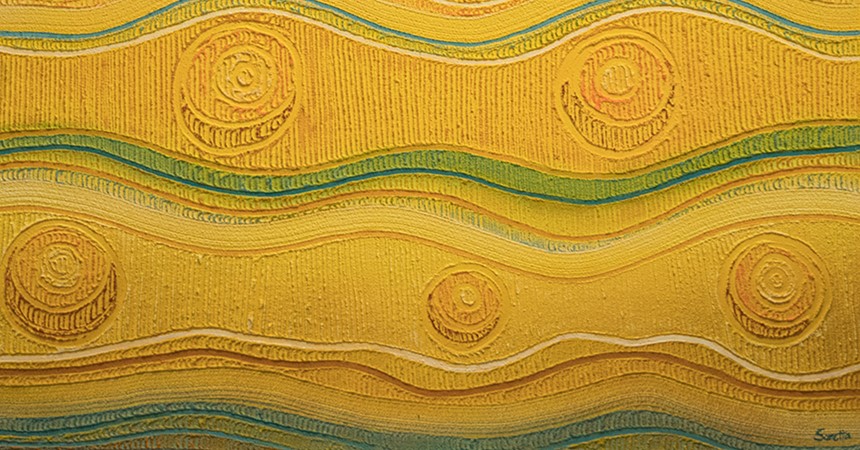I acknowledge that the Diocese of Maitland-Newcastle is on the lands of the Awabakal, Biripi, Darkinjung, Wonnarua, Worimi, Kamilaroi and Wiradjuri people.
On Thursday 18 August, the Diocese of Maitland-Newcastle will launch its Reflect Reconciliation Action Plan (RAP). This is a very significant and important event because it formally acknowledges our commitment to reconciliation and truth-telling.
We will gather:
- Enriched by our diversity of story and history, of gifts and skills, of wisdom and truth, of joy and sorrow, of longing and hope.
- Bearing the wounds of the story that has marked us since the British occupation of the shores of this great south land of the Holy Spirit
- Because this is the time for reconciliation and healing
This marks a long journey for the diocesan Aboriginal and Torres Strait Islander Catholic Ministry Council who have worked for many years to make this day a reality, when all aspects of diocesan life will embrace this RAP.
In our first step in our reconciliation journey, we are committed to:
- Establishing and strengthening mutually beneficial relationships
- Including and listening to the voices of Aboriginal and Torres Strait Islander people in decision-making and leadership
- Raising internal and external awareness of our RAP
- Promoting reconciliation across our Diocesan parishes, schools and agencies
For some background, I think it may be helpful for you to read the words of:
Motion 1 of the Fifth Plenary Council of Australia – Reconciliation: Healing Wounds, Receiving Gifts:
All Australians have much to learn from the cultures, spirituality, and knowledge of country of Aboriginal and Torres Strait Islander people. However, our society is yet to recognise fully Aboriginal and Torres Strait Islander Peoples as the traditional owners and custodians of the lands and waters now known as Australia, or to achieve right relationships with Aboriginal and Torres Strait Islander people and communities.
The Catholic Church in Australia has been caught up in this history of dispossession, Stolen Generations, racism, and the undermining of language and culture. Dioceses, eparchies, and religious institutes have made sincere efforts to share faith, education, and pastoral services with Aboriginal and Torres Strait Islander people. However, much suffering has been inflicted by the historically misguided attempts of those who were ignorant of the cultural richness of these peoples.
We know that we will not be ‘fully the Church that Jesus wants’ us to be until Aboriginal and Torres Strait Islander people have made their contribution to the life of the Church and “until that contribution has been joyfully received by others” within the Church.
The Plenary Council joyfully receives the following recommendations of the National Aboriginal and Torres Strait Islander Catholic Council (NATSICC), which were submitted “in the hope that the Catholic Church in Australia will more resemble the Church that Jesus Christ wants her to be in relation to Australia’s First Peoples” (John Paul II, Address to the Aborigines and Torres Strait Islanders, 29 November 1986):
-
- Developing the cross-cultural competency of clergy, religious, lay workers and volunteers in the Catholic Church to enable more effective and appropriate ministry with Aboriginal and Torres Strait Islander people.
- NATSICC calls upon the Catholic Church to support Aboriginal and Torres Strait Islander Catholics to undertake formation and training. Further, the Church is encouraged to ensure that existing retreats and courses are culturally appropriate.
- Aboriginal and Torres Strait Islander spirituality contains symbols and rituals that, when used appropriately in Catholic liturgical contexts, enrich our celebrations, and facilitate a welcoming environment for Indigenous Peoples.
- NATSICC recommends that the traditional custodians of the land on which the Church, school, parish, or organisation stands be acknowledged in a prominent and appropriate manner. Verbal acknowledgement prior to meetings and Mass is also encouraged.
- NATSICC calls upon the Catholic Church to unearth and discover the genius and gifts that Aboriginal and Torres Strait Islander people possess through inclusion on committees, boards, and decision-making bodies.
The Fifth Plenary Council:
-
- says sorry to Aboriginal and Torres Strait Islander people in and beyond the Church for the part played by the Church in the harms they have suffered;
- commits to walk with Aboriginal and Torres Strait Islander people in continuing to work towards recognition, reconciliation and justice;
- joyfully receives and accepts the recommendations contained in the NATSICC position paper “Embracing Aboriginal and Torres Strait Islanders in the Life of the Catholic Church”;
- endorses the Uluru Statement from the Heart and encourages engagement with processes for implementing the statement, including local, regional, and national truth-telling efforts.
The Decree, which will be sent to the Apostolic See, follows these words. I believe our step this week, to launch this RAP and the establishment of a RAP Reference Group to oversee this Reflect RAP and to begin working on our Innovate RAP, honours our own Diocesan Synod recommendations and the work of the Plenary Council.
Reconciliation is about relationships. It is about loving, truth-telling, deep listening, respectful engagement, and shared hope for a future that is different to the past and the present. Reconciliation requires the participation of all parties. It demands commitment to the journey without knowing the destination.
As a diocesan community we are committing to forming and growing these deep relationships when we gather on Country, at a future time, to listen to the stories of the Aboriginal and Torres Strait Islander People, so as to stretch our understanding and deepen our empathy, in the hope that together we can find a new path that bears the fruit of our shared reflection.
Please look out for our diocesan Reflect Reconciliation Action Plan and the invitation that will come in the future, for us to gather with our local Aboriginal communities.
Thursday should be a proud yet humbling day for all of us.

